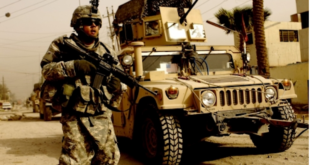Outraged Pakistani journalists have been confronting police on the streets since President Pervez Musharraf imposed emergency rule three weeks ago and muzzled the vibrant media that blossomed under his rule.The battle is over more than just freedom of the press.
“It is actually a power struggle between the military establishment and the new emerging power centers in civilian life represented by the media barons,” said Sabihuddin Ghausi, president of the Karachi Press Club.
Army chief Musharraf, stung by criticism of his maneuvers to hold on to power, curbed the media and blacked out private television news channels, and international broadcasters, after imposing emergency rule on November 3.
All but the most popular channel, Geo News, have been allowed back on air although none is running the political talk shows that infuriated the government.
Journalists are demanding an end to the emergency and the lifting of what they describe as draconian new media laws.
“The sole objective of our struggle is to get these laws withdrawn and that can only be done when the emergency is withdrawn,” said Shamim-ur-Rahman, president of the Karachi Union of Journalists.
Spurred by new technology and unrestrained by censors, Pakistan’s media, in particular television, have flourished over recent years with dozens of new channels springing up.
Musharraf hailed the liberated media as one of his achievements. But relations soured in March when he tried to dismiss the chief justice, unleashing a storm of protest from lawyers and the pro-democracy opposition.
The government, and some independent critics, say some news channels lost objectivity and got caught up in the cause of the anti-Musharraf opposition, setting the scene for confrontation.
“POWER STRUGGLE”
Press groups say the government helped create the media groups it is now trying to stifle, by granting television licenses to a handful of big newspaper companies, now standing up against the establishment.
English-language dailies read by Pakistan’s educated elites dominate newspaper stands, but television news channels are largely in Urdu, giving media groups influence over far more of Pakistan’s 160 million people.
“This new technology has given them a sense of power and they’re not ready to be dictated to by a petty officer of the Information Ministry,” Ghausi said.
Another part of the problem is a lack of experience in the fast-growing industry. A veteran journalist who declined to be identified said sections of the media have been irresponsible and some had virtually become a mouthpiece of the opposition.
Rahman said people hosting political programs should choose their words carefully and act as moderators of debate, but he said the government’s response was unjustified.
“Some of them might have crossed the line at some time but that doesn’t mean you should clamp a closure on television.”Â
The president of embattled Geo News, Imran Aslam, said his channel was only reflecting the reality of tumultuous events.
“There must have been occasions when we were seen to be on the side of one party or another. But there are also times when we’ve been accused by independent sources of being pro-government,” Aslam said.
“The fear is an unbridled media, which they seem to think Geo was, will upset the apple cart,” Aslam said.
All of Geo’s four news, entertainment and sports channels have been blacked out on cable, and authorities in Dubai have also pulled the plug on the news channel’s satellite broadcasts.
The company was losing $500,000 a day but refusing to sign up to a government code of conduct Aslam said would give authorities unfair control, he said.
“It’s not just a question of freedom of speech. These are punitive measures to try to cripple us financially,” Aslam said.
 Eurasia Press & News
Eurasia Press & News



